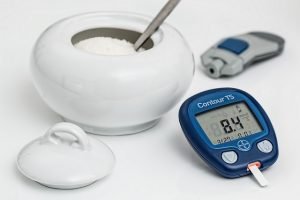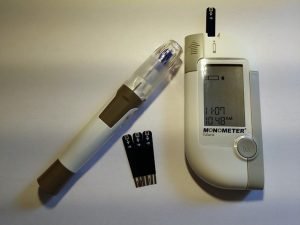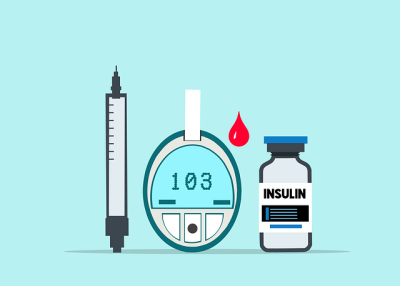What Are The Symptoms Of High Blood Sugar Levels?
Have you ever wondered what the symptoms of high blood sugar levels are? It’s important to be aware of these symptoms as they can indicate a potential problem with your blood sugar regulation. From increased thirst and frequent urination to fatigue and blurred vision, these symptoms can vary from person to person. By understanding and recognizing these symptoms, you can take proactive steps to manage your blood sugar levels and ensure your overall health and well-being.
Frequent urination
Increased frequency of urination
If you find yourself making trips to the bathroom more often than usual, it could be a sign of high blood sugar levels. High blood sugar can cause the kidneys to work harder to eliminate excess glucose from the body, leading to increased urination. This can be especially noticeable during the night, causing you to wake up multiple times to use the restroom.
Feeling the need to urinate more often
In addition to increased frequency, you may also experience a constant urge to urinate even if your bladder is not full. This is because elevated blood sugar levels can affect the nerves that control the bladder, causing it to send signals to the brain that it needs to be emptied.
Waking up multiple times during the night to urinate
If you find yourself having interrupted sleep due to frequent trips to the bathroom, it may be a result of high blood sugar levels. The excessive urination caused by elevated glucose levels can disrupt your sleep patterns and leave you feeling tired during the day.

Increased thirst
Persistent feeling of thirst
Experiencing an unquenchable thirst, regardless of how much water or fluids you consume, can be a symptom of high blood sugar. When there is too much glucose in your blood, your body tries to flush it out through increased urination, leading to dehydration and an overwhelming feeling of thirst.
Feeling thirsty even after drinking plenty of fluids
Despite drinking sufficient amounts of water, you may still feel thirsty if your blood sugar levels are elevated. This is because the excess glucose in your bloodstream can prevent the cells in your body from absorbing the water effectively, leaving you feeling dehydrated and craving more fluids.
Dry mouth
High blood sugar levels can cause dryness in your mouth, making it feel sticky and uncomfortable. Without enough moisture, you may experience difficulty speaking, swallowing, or even tasting food properly. Dry mouth can also increase the risk of dental issues such as cavities and gum disease.

Extreme hunger
Constantly feeling hungry
If you find yourself constantly hungry, even after eating a full meal, it could be a sign of high blood sugar levels. When there is insufficient insulin or your body does not respond effectively to insulin, the glucose from the food you consume cannot be properly transported into your cells, leaving you feeling hungry.
Strong and uncontrollable cravings for food
Experiencing intense cravings, especially for sugary or high-carbohydrate foods, can be a symptom of high blood sugar levels. This occurs because elevated glucose levels in your bloodstream can affect the hormone levels in your body, increasing your desire for quick sources of energy, which often come from unhealthy food choices.
Eating larger portions than usual
Another sign of high blood sugar levels is the tendency to eat larger portions than normal, as your body may be unable to effectively utilize the energy from the food you consume. This can lead to weight gain and difficulty in managing your blood sugar levels effectively.

Unexplained weight loss
Losing weight without trying
If you notice a significant decrease in your body weight without making any conscious effort to lose weight, it may be a result of high blood sugar levels. When your cells are not receiving enough glucose for energy, your body begins to break down fat and muscle tissue as alternate sources of fuel, leading to weight loss.
Significant decrease in body weight
Unexplained weight loss can be a cause for concern, particularly if it occurs rapidly and without any changes in your diet or exercise routine. If you have noticed a significant decrease in your body weight, it is important to consult a healthcare professional to determine the underlying cause, which may include high blood sugar levels.
Experiencing weakness and fatigue
Along with weight loss, high blood sugar levels can cause weakness and fatigue. When your cells do not receive enough glucose, they are unable to function optimally, leading to reduced energy levels and feelings of tiredness. This can impact your daily activities and overall quality of life.
Fatigue
Feeling tired and low on energy
Feeling constantly tired and lacking energy can be a symptom of high blood sugar levels. When your cells are unable to utilize glucose effectively, it can result in a general feeling of fatigue and sluggishness. You may find it difficult to stay awake during the day or struggle to perform your usual tasks.

Lack of motivation and productivity
High blood sugar levels can also affect your mental state, leading to a lack of motivation and decreased productivity. The ongoing fatigue and energy depletion can make it challenging to concentrate on tasks, follow through with plans, or engage in activities you once enjoyed. This can have a significant impact on your work performance and personal life.
Difficulty concentrating
If you find yourself struggling to concentrate or experiencing mental fog, it may be a result of high blood sugar levels. Glucose is important for brain function, and when levels are elevated, it can disrupt cognitive processes and impair your ability to focus, remember information, and make decisions.
Blurred vision
Experiencing difficulty in focusing
High blood sugar levels can affect your vision and lead to difficulty in focusing. When glucose builds up in the lenses of your eyes, it can cause changes in their shape and alter the way they refract light. This can result in blurred vision, making it challenging to see objects clearly.
Seeing double or hazy images
In addition to blurred vision, you may experience double vision or see hazy images if your blood sugar levels are too high. This occurs due to the changes in the fluid balance within your eyes, impacting their ability to transmit clear visual signals to your brain.
Eye strain and discomfort
If you frequently experience eye strain, discomfort, or even pain, it could be a symptom of high blood sugar levels. Elevated glucose levels can cause inflammation and damage to the blood vessels in your eyes, leading to symptoms such as redness, dryness, irritation, and increased sensitivity to light.
Slow healing of cuts and wounds
Delayed healing process for injuries
If you notice that cuts, wounds, or other injuries are taking longer to heal than usual, it could be a result of high blood sugar levels. Elevated glucose levels can impair the body’s natural healing process, affecting the formation of new blood vessels and the production of collagen, which are essential for proper wound healing.
Frequent infections in the affected areas
High blood sugar levels can weaken the immune system, making it harder for your body to fight off infections. This can result in frequent infections in areas where cuts or wounds are present. If you notice that any injuries are not healing properly and seem to be prone to infection, it is important to seek medical attention.
Increased risk of complications
When wounds and cuts take longer to heal, there is an increased risk of complications such as infections and the development of ulcers or sores. These complications can be challenging to treat and may require specialized medical care to prevent further damage or potential amputation in severe cases.
Tingling or numbness in extremities
Pins and needles sensation in hands and feet
A common symptom of high blood sugar levels is the experience of a pins and needles sensation in your hands and feet. This is known as peripheral neuropathy and occurs when elevated glucose levels damage the nerves that transmit sensations to these areas of the body.
Numbness or reduced sensation in limbs
In addition to the pins and needles sensation, you may also experience numbness or a reduced ability to feel touch, pressure, or temperature in your limbs. This can significantly impact your coordination and balance, increasing the risk of falls or injuries.
Burning or electric shock-like sensations
Some individuals with high blood sugar levels may also experience a burning or electric shock-like sensation in their extremities. This can be uncomfortable and may worsen over time if the underlying cause is not addressed. It is essential to seek medical advice if you notice these symptoms.

Recurrent infections
Frequent urinary tract infections
If you are experiencing frequent urinary tract infections, it could be a result of high blood sugar levels. Elevated glucose levels can create an environment that is favorable for bacterial growth in the urinary tract, leading to recurrent infections. These infections can cause discomfort, pain, and may require medical intervention.
Yeast infections in women
High blood sugar levels can also increase the risk of yeast infections in women, particularly in the vaginal area. The excess glucose provides a food source for yeast, leading to overgrowth and the development of symptoms such as itching, burning, and unusual discharge. Proper management of blood sugar levels is essential for preventing recurrent yeast infections.
Skin infections and slow healing sores
When your blood sugar levels are consistently high, your body’s ability to fight off infections can be compromised. This can result in skin infections, such as cellulitis or abscesses, which may take longer to heal. Slow healing sores or ulcers can also develop, particularly in areas that are frequently subjected to pressure or poor circulation.
Irritability and mood changes
Feeling irritable and easily agitated
High blood sugar levels can impact your mood, causing irritability and an increased tendency to become easily agitated. The fluctuations in blood sugar levels can affect neurotransmitters in the brain, leading to changes in emotional states and impacting your overall well-being.
Experiencing mood swings
Unstable blood sugar levels can contribute to mood swings, causing sudden changes in your emotions and behavior. You may find yourself feeling happy one moment and then becoming irritable or sad shortly after. These mood swings can be challenging to manage and can impact your relationships and daily interactions.
Increased anxiety or depression-like symptoms
In some individuals, high blood sugar levels can contribute to an increased sense of anxiety or the development of depression-like symptoms. Fluctuating glucose levels can affect the neurotransmitters responsible for regulating mood and can lead to feelings of anxiety, sadness, and a lack of interest or pleasure in activities.
In conclusion, recognizing the symptoms of high blood sugar levels is crucial for early intervention and proper management. Frequent urination, increased thirst, extreme hunger, unexplained weight loss, fatigue, blurred vision, slow healing of cuts and wounds, tingling or numbness in extremities, recurrent infections, and irritability and mood changes are all signs that your blood sugar levels may be elevated. If you experience any of these symptoms, it is important to consult a healthcare professional for an accurate diagnosis and appropriate treatment. Taking steps to manage your blood sugar levels can help you maintain overall health and prevent complications associated with high blood sugar levels.



